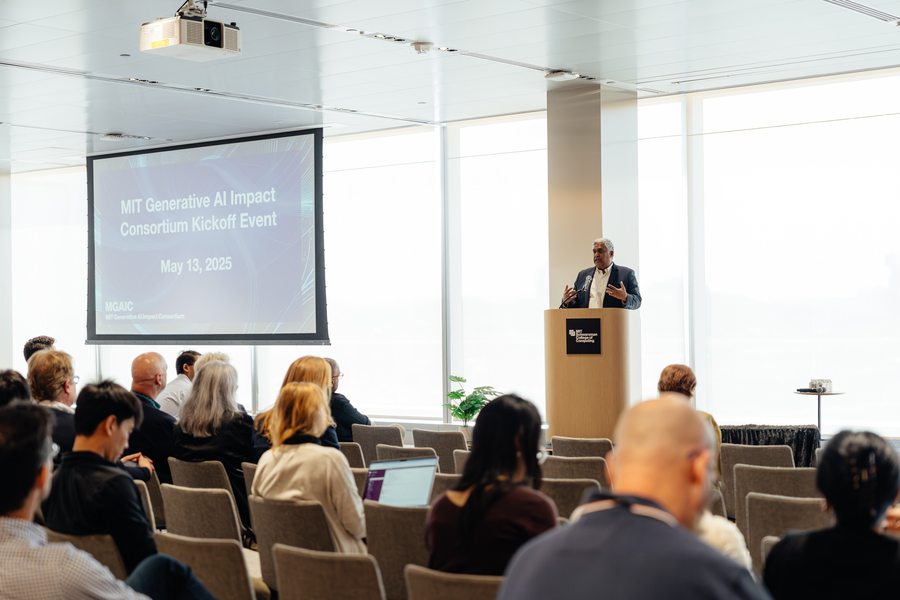The MIT Generative AI Impact Consortium officially launched with a high-energy event that showcased transformative ideas at the intersection of artificial intelligence and societal advancement.
Hosted on May 13 at MIT, the consortium’s kickoff featured over 30 presentations from faculty and researchers across disciplines, spotlighting real-world applications of generative AI in fields such as health care, education, sustainability, and the arts.
180 Proposals Submitted Across MIT's Five Schools
The MIT Generative AI Impact Consortium (MGAIC), launched in February 2025 as a presidential initiative, received 180 project submissions involving nearly 250 faculty members.
Administered by the MIT Stephen A. Schwarzman College of Computing, this cross-institute effort awarded 55 inaugural seed grants.
Founding industry members of the consortium funded additional projects.
Anantha P. Chandrakasan, MIT’s chief innovation and strategy officer and dean of the School of Engineering, opened the event.
“The amazing response to our call for proposals is an incredible testament to the energy and creativity that MGAIC has sparked at MIT,” he said.
“One of the things that has been most remarkable about MGAIC is that this is a truly cross-Institute initiative”.
Lightning Talks Cover AI in Literacy, Music, Urban Sustainability
The event included five-minute lightning talks, moderated by Vivek F. Farias, professor at the MIT Sloan School of Management and co-director of MGAIC.
Presentations featured pioneering ideas aimed at delivering measurable impact.
Ola Ozernov-Palchik, a research scientist at the McGovern Institute for Brain Research, proposed a project titled “AI-Driven Tutors and Open Datasets for Early Literacy Education”.
The work aims to refine AI tutoring systems for pre-K through 7th-grade students to help close literacy gaps.
Anna Huang and Joe Paradiso introduced “Developing jam_bots: Real-Time Collaborative Agents for Live Human-AI Musical Improvisation”.
Their project seeks to integrate AI agents into live concert settings to support dynamic co-creation between humans and machines.
Norhan Bayomi, a postdoctoral fellow at the MIT Environmental Solutions Initiative, presented “GENIUS: GENerative Intelligence for Urban Sustainability” .
This research targets the development of a standardized approach for assessing and comparing the effectiveness of municipal climate strategies.
Hardware and Robotics Also in Focus
Another standout proposal came from Krishna Pochana, a PhD candidate in the Terahertz Integrated Electronics Group.
His research, “High-Resolution and Multi-Modality Sense of Touch,” introduces a compact terahertz tactile chip system.
The chip enhances tactile feedback in robotic hands, potentially advancing robotic training and manipulation capabilities.
MIT Leaders Signal Strategic Vision for Generative AI
Georgia Perakis, interim dean of the MIT Sloan School of Management and co-chair of the GenAI Dean’s oversight group, closed the event with a call to leadership.
“This is only the beginning,” she said.
“We are at the front edge of a historic moment, one where MIT has the opportunity, and the responsibility, to shape the future of generative AI with purpose, with excellence, and with care”.
PHOTO: MIT
This article was created with AI assistance.
Read More






 Friday, 27-02-26
Friday, 27-02-26







